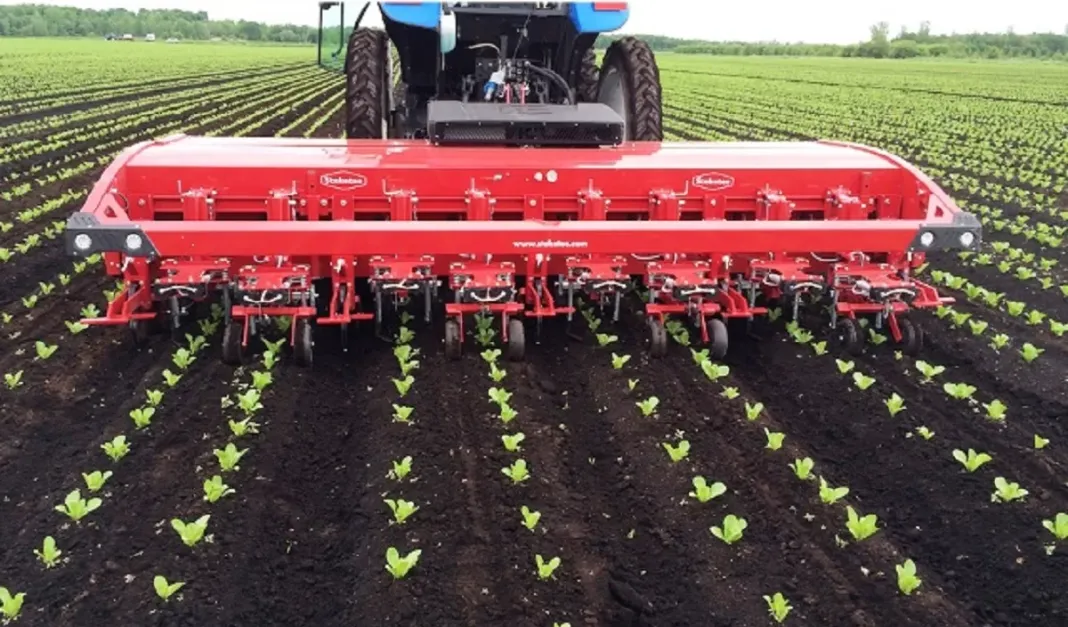

Farmers here have gradually adopted machines in agriculture, thereby boosting production and returns. The high-tech tunnel, drip irrigation and mulching technologies are common these days.
Trilochan Sapkota is the one utilising modern technology in agriculture. Actively involved in agriculture for three decades, Sapkota from Dhodeni of Baglung Municipality-4 shared that he was able to double the production with adoption of mechanisation. Currently, he is running high tech tunnel farming in 12 ropanis of land.
He has applied drip irrigation and mulching technologies in each plastic tunnel. The cattle urine is supplied to a plastic tunnel with cleaning and disinfection. It has been managed under the Kaligandaki Livestock and Agro Farm Company.
“I’ve been doing commercial farming and livestock for 32 years. Adoption of technology for five years has doubled my income,” he shared, adding that vegetable farming in tunnels is reaping benefits.
Sapkota sells 25 litres of milk produced by three buffalos and a cow every day. He is also raising local fishes in a pond as well. “Last May alone, I earned Rs 200 thousand by selling tomatoes. Such good income was possible with the use of technology,” he informed.
He has given regular jobs to two persons and some others on contract basis.
“I earn as much as Rs 1.5 million rupees annually by selling milk, fish and vegetables,” he said. With this, he has been able to afford higher education to his three sons. One of his sons is in the US, and another one in Australia now.
According to him, once the crops and livestock are prevented from diseases, huge income is guaranteed. Similarly, the government is providing grants and technical assistance. Although half million rupees is spent on wages, fertiliser and seeds every year, Rs one million is easily saved.
He is planning to expand the agricultural farm and make it pesticide-free. Cleaned and disinfected urine of cattle is used in vegetables as compost. He has three ropanis of land on his own for running the agricultural farm, while remaining one taken in rent. Rs 80,000 is paid by him for land lease. Cauliflower, cabbage, beans, and tomatoes are produced on the farm. Major source of income is tomatoes.
Sapkota is assisted by his spouse and youngest son Sagar. In addition to agriculture and livestock, Sapkota is a chairperson of a local Sangam Dairy Producer and Agricultural Cooperative. He stresses patience and perseverance for success in agriculture. —-